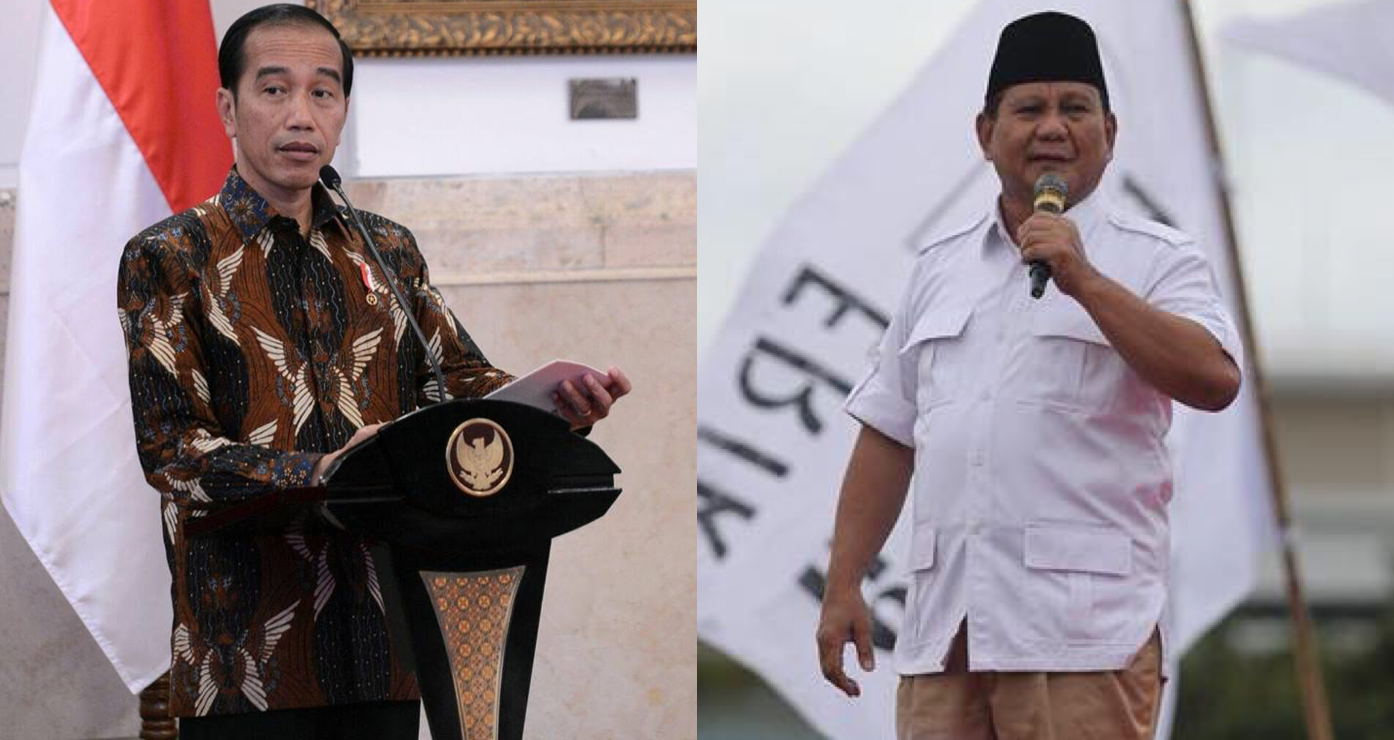Malaysians elected a new leader in 2018. Will Indonesians do the same in 2019?
The Presidential election will take place in April 2019, with millions of Indonesians voting directly for their preferred candidate.
Unlike Singapore, Indonesia's President is both Head of Government and Head of State, and therefore wields significant executive power.
The incumbent is President Joko Widodo, popularly known as Jokowi. He will run for his second (and final) term of office.
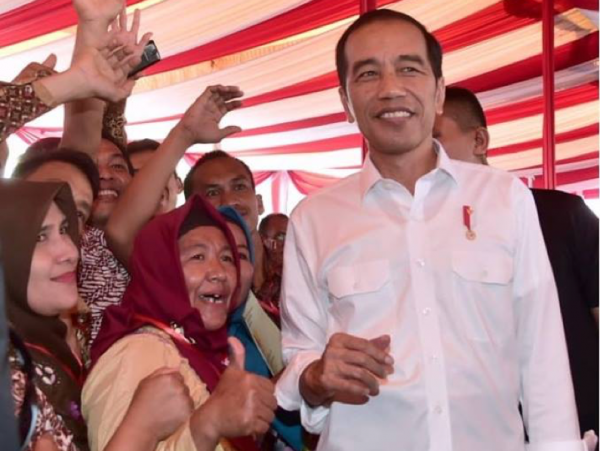 Source: Joko Widodo's Facebook page.
Source: Joko Widodo's Facebook page.
The candidates
Widodo was elected for his first five-year term as President in 2014, after serving as Governor of Jakarta.
Due to his humble beginnings, rapid rise and popularity with the youth, he was seen then as Indonesia's answer to President Barack Obama.
His challenger will be the same man he defeated in 2014 -- Prabowo Subianto, the former Lieutenant General in the Indonesian National Armed Forces.
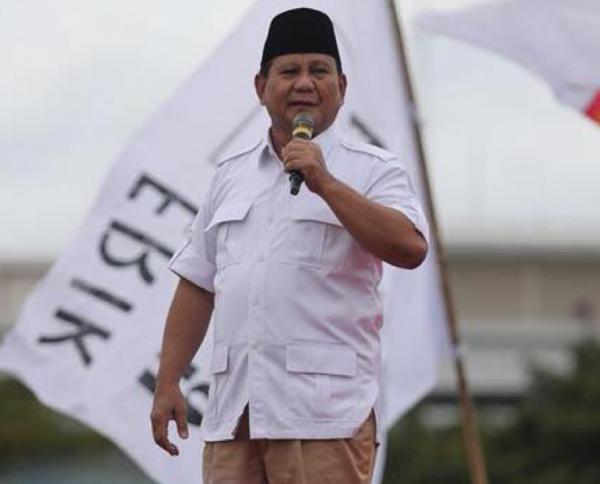 Pic adapted from Prabowo Subianto's Facebook page.
Pic adapted from Prabowo Subianto's Facebook page.
Does Jokowi have the upper hand?
As the sitting President, Widodo enjoys some advantages in an election.
According to Professor Djayadi Hanan, a lecturer of political science at Jakarta's Paramadina University, Widodo enjoys a high "top-of-mind awareness" among survey respondents.
This refers to a candidate's name being the first answer given when asked about the election.
[related_story]
Hanan, who was speaking at the ISEAS-Yusof Ishak Institute in NUS on Aug. 13, also explained that the Indonesian economy remains relatively stable going into the election.
While growth is quite low at 5.1 per cent, inflation is also low at 4 per cent. Poverty and unemployment concerns remain, but Widodo has also made progress in infrastructure development, education and healthcare. Said Hanan:
"Jokowi's economy has its ups and downs, but it's still pretty good."
Online trends favour Subianto?
However, the incumbent also tends to be unpopular with the part of the electorate who want a new face.
According to Hanan, Widodo is currently unpopular with the urban middle class voters, and his supporters are less enthusiastic online.
The hashtag #2019GantiPresiden used by Subianto's supporters, which translates to "Change the President in 2019", has gone viral on social media sites like Instagram.
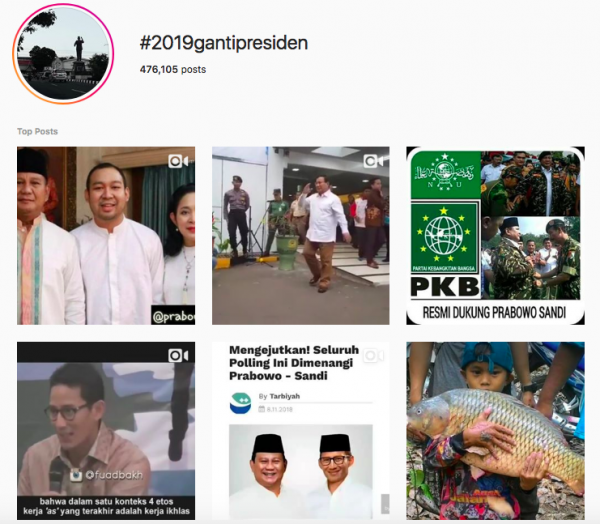 Screen shot from Instagram.
Screen shot from Instagram.
Widodo's own supporters acknowledge its popularity even as they launch their own counter hashtag, #2019TetapJokowi (Keep Jokowi in 2019).
New VP needed
You may have heard of Widodo's first Vice-President (VP), Jusuf Kalla.
He's the guy who famously said this in 2015, after a bad bout of haze from Indonesian forest fires afflicted Singapore:
"For 11 months, they (our neighbours) enjoyed nice air from Indonesia and they never thanked us. They have suffered because of the haze for one month and they get upset."
 Screen shot from thankyouindoforthecleanair.com
Screen shot from thankyouindoforthecleanair.com
But Kalla can't team up with Jokowi again. He previously served as VP in 2004 before becoming VP again in 2014, and a VP can only serve for a maximum of two terms.
So Widodo needed a new VP for 2019. His first choice was former Constitutional Court chief justice Mahfud MD, who also previously served as the Minister for Defence.
On Aug. 9, television stations around the country were preparing to announce Mahfud's candidacy, and posters had even been prepared.
It came as a surprise on Thursday evening when Widodo announced he would run with Ma'ruf Amin instead.
Amin is a 75-year-old Islamic cleric who isn't a traditional politician, but chairs the Indonesian Ulema Council, a central authority for all of Indonesia's registered Muslim organisations.
 Pic from Majelis Ulama Indonesia via Wikimedia Commons.
Pic from Majelis Ulama Indonesia via Wikimedia Commons.
The choice of Amin perhaps reflects Widodo's desire to burnish his religious credentials, after enduring repeated attacks that he is actually a secret Christian.
Missed opportunity
According to Thomas Power, a senior doctoral candidate at the Australian National University who also spoke at the ISEAS-Yusof Ishak Institute, Widodo's coalition partners were against Mahfud for a number of reasons:
- Mahfud is younger than Amin, and would be a strong Presidential candidate in the 2024 election if Widodo won in 2019 and he became the VP.
- Mahfud has an anti-party reputation, based on a decision he made while in the Constitutional Court to move from a closed list to an open list party system, which weakened their ability to control who gets elected to the legislature.
- Mahfud has connections to pluralist volunteer groups, and Widodo's coalition wants to lessen their influence.
So things were set for a showdown between Widodo and his coalition. But in the end, Widodo went along with them and did not push for the VP candidate he wanted.
Power thought that was a missed opportunity for Widodo to demonstrate his authority:
"He held all the cards. If they didn't want to support him, less than 24 hours before the nominations closed, he could have said 'Fine, go and form your own coalition.'
Maybe one or two of them would have gone, but it would have allowed Jokowi to get the running mate he wanted, and he wouldn't have looked so vulnerable to pressure from his coalition."
VP for Prabowo
Subianto, on the other hand, has gone for someone much younger as a running mate.
The 49-year-old Sandiaga Uno, former Deputy Governor of Jakarta, was formally registered as Subianto's VP pick.
Uno resigned from his post on Aug. 9 in order to campaign with Subianto.
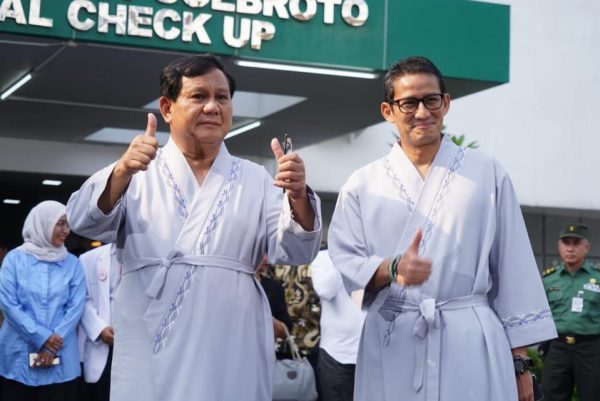 Pic from Sandiaga Salahuddin Uno's Facebook page.
Pic from Sandiaga Salahuddin Uno's Facebook page.
Like Widodo's choice of Amin, Uno was also seen as a surprise. Most observers had expected Subianto to pick Agus Yudhyono, the son of former President Susilo Bambang Yudhyono.
Yudhyono chairs the Democratic Party, which is supporting Subianto in the election.
However, despite threats from the Democratic Party to quit the coalition, Subianto held firm and they had no choice but to support Uno as VP.
According to Power, this show of strength by Subianto demonstrated his political savvy in the matter of the VP selection as opposed to Widodo:
"Prabowo outperformed Jokowi. He couldn't afford to lose any of his coalition partners, unlike Jokowi. However, he got the running mate he wanted."
Anyone's ball game
The election will be a major one, not just for Indonesia but the rest of Southeast Asia too.
Whoever becomes President will assume command of one of the largest militaries in the region, as well as the director of its largest economy, measuring over US$1 trillion in 2017.
In 2014, Widodo received 53 per cent of the vote to Subianto's 47 per cent.
However, despite Widodo's position as the incumbent, Subianto's popularity among the youth voters of Indonesia could make this rematch a closer fight in 2019.
Top image adapted from Presiden Joko Widodo and Prabowo Subianto's Facebook pages.
If you like what you read, follow us on Facebook, Instagram, Twitter and Telegram to get the latest updates.
